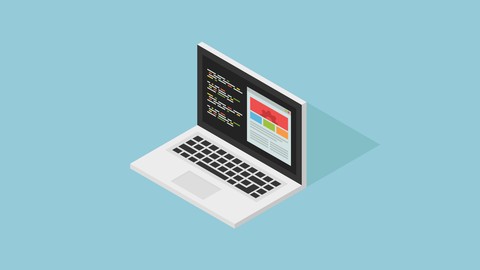
Eclipse tips and tricks
Eclipse tips and tricks, available at Free, has an average rating of 4.4, with 13 lectures, based on 211 reviews, and has 11430 subscribers.
You will learn about At the end of course, students will be more productive when working with Eclipse, they will be able to boost their speed and overall performance. This course is ideal for individuals who are Target student is junior, intermediate, senior programmer or developer who wants to be more productive with Eclipse and who wants to get know more tips and tricks when working with Eclipse It is particularly useful for Target student is junior, intermediate, senior programmer or developer who wants to be more productive with Eclipse and who wants to get know more tips and tricks when working with Eclipse.
Enroll now: Eclipse tips and tricks
Summary
Title: Eclipse tips and tricks
Price: Free
Average Rating: 4.4
Number of Lectures: 13
Number of Published Lectures: 12
Number of Curriculum Items: 13
Number of Published Curriculum Objects: 12
Original Price: Free
Quality Status: approved
Status: Live
What You Will Learn
- At the end of course, students will be more productive when working with Eclipse, they will be able to boost their speed and overall performance.
Who Should Attend
- Target student is junior, intermediate, senior programmer or developer who wants to be more productive with Eclipse and who wants to get know more tips and tricks when working with Eclipse
Target Audiences
- Target student is junior, intermediate, senior programmer or developer who wants to be more productive with Eclipse and who wants to get know more tips and tricks when working with Eclipse
What is Eclipse IDE?
Eclipse is one of the most popular IDE’s in the world.�
Eclipse is an integrated development environment (IDE) used in computer programming, and is the most widely used Java IDE. It contains a base workspace and an extensible plug-in system for customizing the environment. Eclipse is written mostly in Java and its primary use is for developing Java applications, but it may also be used to develop applications in other programming languages through the use of plugins, including: Ada, ABAP, C, C++, COBOL, D, Fortran, Haskell, JavaScript, Julia, Lasso, Lua, NATURAL, Perl, PHP, Prolog, Python, R, Ruby (including Ruby on Rails framework), Rust, Scala, Clojure, Groovy, Scheme, and Erlang. It can also be used to develop documents with LaTeX (through the use of the TeXlipse plugin) and packages for the software Mathematica. Development environments include the Eclipse Java development tools (JDT) for Java and Scala, Eclipse CDT for C/C++ and Eclipse PDT for PHP, among others.
The initial codebase originated from IBM VisualAge. The Eclipse software development kit (SDK), which includes the Java development tools, is meant for Java developers. Users can extend its abilities by installing plug-ins written for the Eclipse Platform, such as development toolkits for other programming languages, and can write and contribute their own plug-in modules. Since Equinox, plug-ins can be plugged/stopped dynamically and are known as (OSGI) bundles
Learn various Eclipse tips and tricks
This course is for everyone who wants to work with such rich IDE as Eclipse. Learn various topics of how to use Eclipse to be more productive.�
Idea behind course
Idea behind this course was to make quick overview of tips, tricks and what can you do with Eclipse, with short and direct “into the head” explanations. This course is free – and it is planned to remain free (with new materials, hopefully soon) !�
Contents and Overview�
What is covered in course:
- setting up IDE and adding Java and Maven to path (Windows example)
- good practices for enabling faster loading of projects
- validation, controlling console output, bookmarks
- server port problems, setting build path, viewing code changes in real time
- fixing encoding problems, servlet problem, setting stack size
- faster installing of plugins, working behind corporate proxy
- how to use maven, pom.xml, and dealing with problematic connectivity
- generating javadoc avoiding errors
- enabling curly braces, various shortcuts
What are the requirements?
- Before starting this course, students need to know how to download and install software from search site like Google or similar. They need to know absolutely basic things for working with Eclipse – how to use file and other menus in Eclipse, and how to create empty project with Eclipse. Although this course is for all levels, for topic with Maven there is needed knowledge of how to write well defined pom.xml fine. Some examples show possible difficulties that occurs in larger projects and complex environments, but that is also why this course is good path for non-experienced and junior programmers or developers also who want to avoid possible problems before they occur. Basic understanding of Java language – classes and structure is needed to be able to understand examples with tips and tricks when working with Eclipse, but some of this tips and tricks should help you even if you are working in Eclipse with other language than Java.
What am I going to get from this course?
- At the end of course, students will gather valuable information. Students should be more productive when working with Eclipse, they will be able to boost their speed and overall performance.�
What is the target audience?
- Target student is junior, intermediate, senior programmer or developer who wants to be more productive with Eclipse and who wants to get know more tips and tricks when working with Eclipse
Course Curriculum
Chapter 1: Introduction, installation and working environment setup
Lecture 1: Introduction
Lecture 2: Installing required software and setting up IDE (Windows example)
Chapter 2: Various tips and tricks – including examples in practice!
Lecture 1: Build path set up, server port problems, how and why of real-time code changes
Lecture 2: Encoding problems, common servlet problem, setting stack size
Lecture 3: Practices and advices for speeding up work
Lecture 4: Adding new plugins and dependencies in Eclipse, dealing with connectivity issues
Lecture 5: How to use maven, pom.xml, and how to deal with specific connectivity
Lecture 6: Generating javadoc avoiding errors
Lecture 7: Fixing non working shortcuts and various shortcuts tips and tricks
Chapter 3: NEW lectures – Various tips and tricks – including examples in practice!
Lecture 1: Using code templates inside Eclipse IDE
Lecture 2: Revision history, plugin development
Chapter 4: Bonus Lecture
Lecture 1: Bonus Lecture: New Course
Instructors
-
Dario Benšić
Software development
Rating Distribution
- 1 stars: 11 votes
- 2 stars: 16 votes
- 3 stars: 56 votes
- 4 stars: 81 votes
- 5 stars: 47 votes
Frequently Asked Questions
How long do I have access to the course materials?
You can view and review the lecture materials indefinitely, like an on-demand channel.
Can I take my courses with me wherever I go?
Definitely! If you have an internet connection, courses on Udemy are available on any device at any time. If you don’t have an internet connection, some instructors also let their students download course lectures. That’s up to the instructor though, so make sure you get on their good side!
You may also like
- Top 10 Content Creation Courses to Learn in December 2024
- Top 10 Game Development Courses to Learn in December 2024
- Top 10 Software Testing Courses to Learn in December 2024
- Top 10 Big Data Courses to Learn in December 2024
- Top 10 Internet Of Things Courses to Learn in December 2024
- Top 10 Quantum Computing Courses to Learn in December 2024
- Top 10 Cloud Computing Courses to Learn in December 2024
- Top 10 3d Modeling Courses to Learn in December 2024
- Top 10 Mobile App Development Courses to Learn in December 2024
- Top 10 Graphic Design Courses to Learn in December 2024
- Top 10 Videography Courses to Learn in December 2024
- Top 10 Photography Courses to Learn in December 2024
- Top 10 Language Learning Courses to Learn in December 2024
- Top 10 Product Management Courses to Learn in December 2024
- Top 10 Investing Courses to Learn in December 2024
- Top 10 Personal Finance Courses to Learn in December 2024
- Top 10 Health And Wellness Courses to Learn in December 2024
- Top 10 Chatgpt And Ai Tools Courses to Learn in December 2024
- Top 10 Virtual Reality Courses to Learn in December 2024
- Top 10 Augmented Reality Courses to Learn in December 2024






















